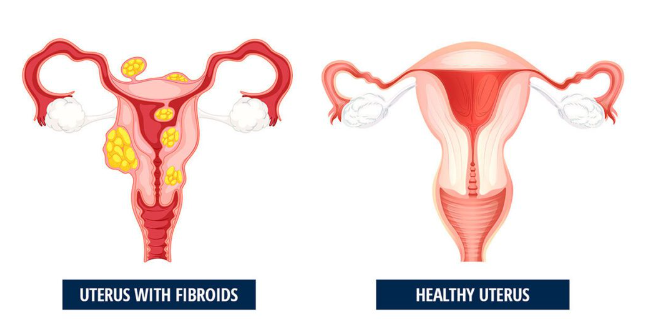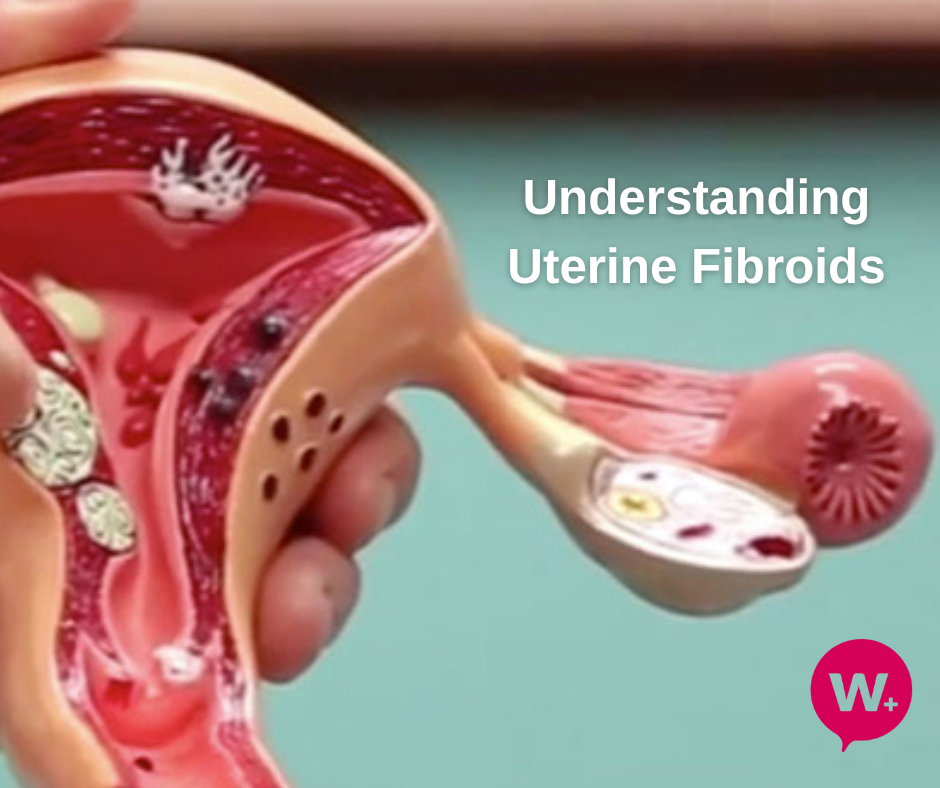Uterine fibroids, also known as myomas, are abnormal, non-cancerous growth that develop in the uterus (womb). They are quite common, with many women experiencing them during their reproductive years. Fibroids can vary in size, ranging from small, undetectable nodules to large masses that can distort the shape and size of the uterus.
Fibroids can be an extremely painful and uncomfortable situation for the one suffering from it. This discomfort can elevate during periods. Fibroids can also make pregnancy and conception itself difficult.
The exact cause of uterine fibroids is unclear, but they are thought to be influenced by imbalance of hormones, particularly estrogen and progesterone.
Risk factors for developing fibroids include age (most common in women aged 30-40), a family history of fibroids.
Uterine fibroids can be detected by a doctor during a pelvic examination or sonography. However, when symptoms do occur, they may include:
- Heavy or prolonged menstrual periods: Fibroids can cause excessive menstrual bleeding, sometimes leading to anemia.
- Pelvic pain or pressure: Large fibroids may cause discomfort or a feeling of pressure in the pelvic area.
- Urinary and bowel problems: Fibroids that press against the bladder or bowel can cause frequent urination, difficulty emptying the bladder, constipation, or even urinary or bowel obstruction in rare cases.
- Abdominal swelling or enlargement: Large fibroids can cause the abdomen to appear swollen or distended.
- Reproductive issues: Fibroids can sometimes interfere with fertility or lead to complications during pregnancy, such as increased risk of miscarriage, preterm labor, or the need for a cesarean section.

uterus with fibroids versus healthy uterus
Treatment for uterine fibroids depends on several factors, including the severity of symptoms, the size and location of the fibroids, and the plan or wish for future pregnancy. Treatment options are medication (such as hormonal therapy) or surgical interventions (such as myomectomy or hysterectomy) to remove the fibroids or the entire uterus itself.
If you suspect you have uterine fibroids or are experiencing symptoms, it is important to consult with a gynecologist at the earliest, who can evaluate your condition and recommend appropriate management options based on your specific circumstances.






,